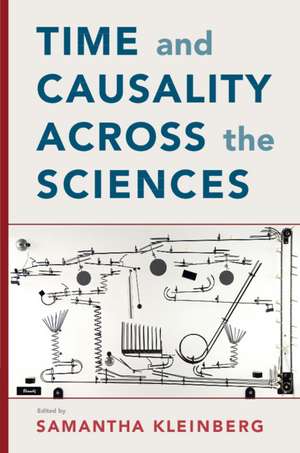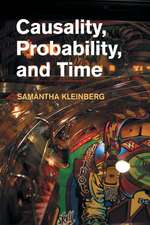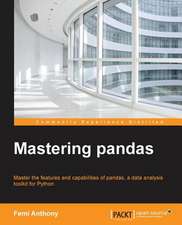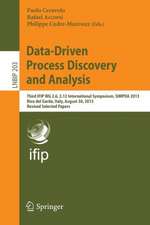Time and Causality across the Sciences
Editat de Samantha Kleinbergen Limba Engleză Hardback – 25 sep 2019
Preț: 440.98 lei
Preț vechi: 551.22 lei
-20% Nou
Puncte Express: 661
Preț estimativ în valută:
84.38€ • 88.10$ • 69.84£
84.38€ • 88.10$ • 69.84£
Carte tipărită la comandă
Livrare economică 31 martie-07 aprilie
Preluare comenzi: 021 569.72.76
Specificații
ISBN-13: 9781108476676
ISBN-10: 1108476678
Pagini: 270
Ilustrații: 30 b/w illus.
Dimensiuni: 157 x 235 x 20 mm
Greutate: 0.5 kg
Editura: Cambridge University Press
Colecția Cambridge University Press
Locul publicării:New York, United States
ISBN-10: 1108476678
Pagini: 270
Ilustrații: 30 b/w illus.
Dimensiuni: 157 x 235 x 20 mm
Greutate: 0.5 kg
Editura: Cambridge University Press
Colecția Cambridge University Press
Locul publicării:New York, United States
Cuprins
1. An introduction to time and causality Samantha Kleinberg; 2. Causality and time: an introductory typology Bert Leuridan and Thomas Lodewyck; 3. The direction of causation Phil Dowe; 4. On the causal nature of time Victor Gijsbers; 5. Causation in a physical world: an overview of our emerging understanding Jenann Ismael; 6. Intervening in time Neil R. Bramely; 7. Time-event relationships as representations for constructing cell mechanisms Yin Chung Au; 8. Causation, time asymmetry, and causal mechanisms in the social sciences Inge de Bal and Erik Weber; 9. Temporalization in causal modeling Jonathan Livengood and Karen R. Zwier; 10. Reintroducing dynamics into static causal models Naftali Weinberger; 11. Overcoming the poverty of mechanisms in causal models David Jensen.
Recenzii
'Understanding the causal relations that make the world go round would be so much easier if mechanisms didn't operate over time, or at least if they operated at a single time scale. But mechanisms do unfold over multiple time scales, making not only inferences about causality tricky, but the very definition of causality the most slippery of conceptual issues. This book unpacks all this at the cutting edge of philosophy and science. It even addresses what may be the heart of the problem: how people understand causality and its counterpart, time.' Steven Sloman, Brown University, Rhode Island
'A very useful collection on a fascinating topic. The connection between time and causation seems as obvious in science as in everyday life, yet turns out to be deeply puzzling, as soon as we dig below the surface. The essays collected here offer an excellent and accessible introduction to the issues, from an impressively interdisciplinary range of perspectives.' Huw Price, University of Cambridge
'The volume encompasses a wide range of discussions on both metaphysical and epistemological approaches, and chapter authors look at issues across the sciences including physics, biochemistry, psychology, and sociology. Readers will undoubtedly agree that most researchers, including philosophers, who are concerned about causality would benefit from considering how their own approach compares with those of other disciplines … the material will be accessible to anyone within the respective sciences. The chapters are well written throughout, each with a good reference list.' E. Kincanon, Choice
'A very useful collection on a fascinating topic. The connection between time and causation seems as obvious in science as in everyday life, yet turns out to be deeply puzzling, as soon as we dig below the surface. The essays collected here offer an excellent and accessible introduction to the issues, from an impressively interdisciplinary range of perspectives.' Huw Price, University of Cambridge
'The volume encompasses a wide range of discussions on both metaphysical and epistemological approaches, and chapter authors look at issues across the sciences including physics, biochemistry, psychology, and sociology. Readers will undoubtedly agree that most researchers, including philosophers, who are concerned about causality would benefit from considering how their own approach compares with those of other disciplines … the material will be accessible to anyone within the respective sciences. The chapters are well written throughout, each with a good reference list.' E. Kincanon, Choice
Descriere
Explores the critical role time plays in our understanding of causality, across psychology, biology, physics and the social sciences.


























